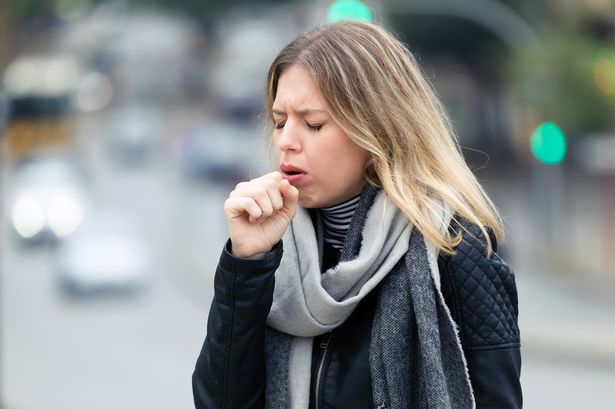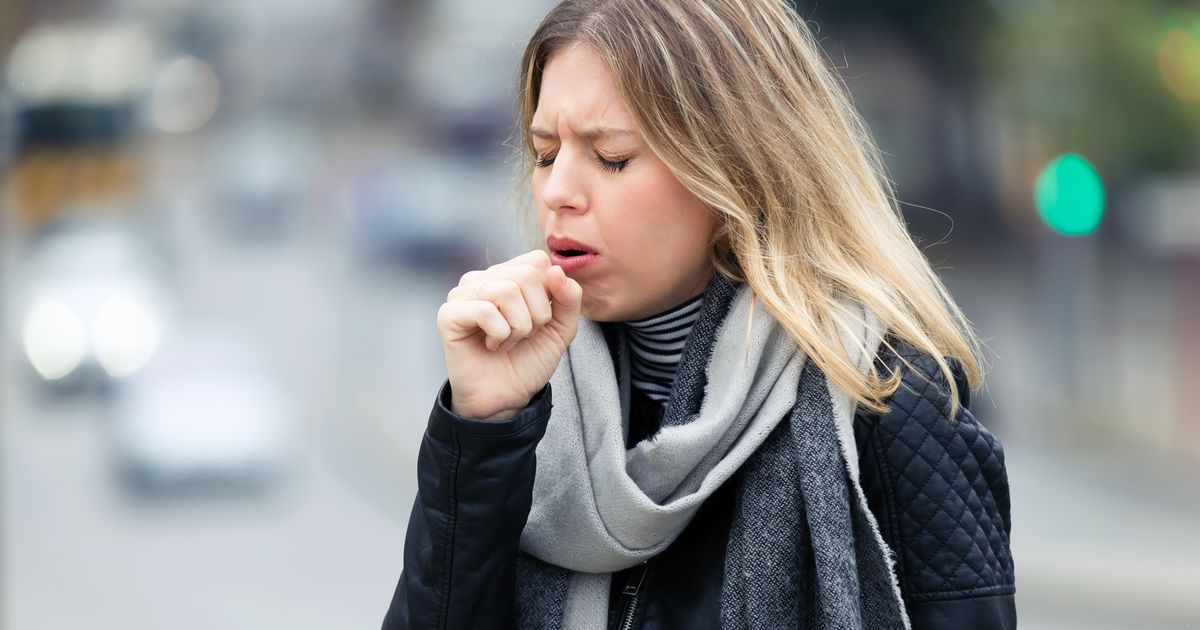The HSE is warning people in Ireland to seek urgent medical help if certain Covid symptoms worsen. A persistent cough is one key sign of Covid to look for(Image: Getty)
A persistent cough is one key sign of Covid to look for(Image: Getty)
The HSE is urging people to seek urgent medical help if they experience certain Covid symptoms, as the virus continues to circulate in Ireland.
New data from the Health Protection Surveillance Centre (HPSC) shows 352 new Covid cases were reported nationwide over the past week, down from 446 the week before. Most infections are now linked to the XFG (Stratus) variant, which accounts for 71.4% of all known cases.
The highest number of new cases were recorded in Dublin (106), followed by Cork (41) and Wicklow (21). At the other end of the scale, Longford reported no new cases, while Carlow, Cavan, Laois, Mayo and Westmeath each reported two.
The World Health Organization has classified Stratus as a “variant under monitoring”, noting that while it doesn’t appear to cause more severe illness, it spreads faster than previous strains – a pattern reflected in Ireland’s latest Covid figures.
Meanwhile, flu and RSV infections are on the rise, with 119 flu cases confirmed last week (up from 41 two weeks ago) and 40 RSV cases, more than double the 17 recorded the week before.
The HSE has reminded the public to stay alert to 18 potential Covid symptoms:
fever (high temperature – 38C or above) – including having chillsdry coughfatigue (tiredness)loss or change to your sense of smell or taste – this could mean they’re completely gone or just different to normalnasal congestion (runny or blocked nose)conjunctivitis (also known as red eye or pink eye)sore throatheadachemuscle or joint pain (aches and pains)different types of skin rashnausea or vomitingdiarrhoeachillsdizzinessshortness of breath or breathing difficultiesloss of appetiteconfusionpain or pressure in the chest.
While most people recover on their own without medical help, the HSE is warning anyone who feels their condition worsening to act quickly.
Its official guidance states: “Call a GP or out-of-hours GP immediately if your symptoms of Covid get worse and you start feeling very unwell, particularly if your breathing changes, becomes difficult, or your cough gets worse; or if you feel that you are getting increasingly short of breath; or if you are showing signs of dehydration.”
The HSE also added: “Call 112 or 999 if you are very short of breath and cannot reach the GP service.”
Those experiencing a high fever are advised to “contact your GP if you have a very high fever (over 40C) and you are still feverish after three days of home treatment or seem to be getting sicker; or if you are shivering or shaking uncontrollably, or have chattering teeth, and it does not stop within an hour or so; or if you have a severe headache that does not get better after taking painkillers; or if you are getting confused or are unusually drowsy.”
For dehydration, the HSE advises: “Contact your GP if you have been dehydrated and are now drinking regularly or are using oral rehydration sachets and you are feeling unusually tired; if you are confused and disorientated; if you have any dizziness when you stand and it does not go away; if you have not peed all day; if you have a weak or rapid pulse have fits (seizures).”
The HSE is reminding the those with Covid to stay at home until 48 hours after symptoms are mostly or fully gone. The current Ireland Covid guidance is: “If you have any symptoms of Covid and feel unwell, you should: stay at home until 48 hours after your symptoms are mostly or fully gone avoid contact with other people, especially people at higher risk from Covid. You do not need a Covid test unless a GP or health professional tells you to.”
Subscribe to our newsletter for the latest news from the Irish Mirror direct to your inbox: Sign up here.

